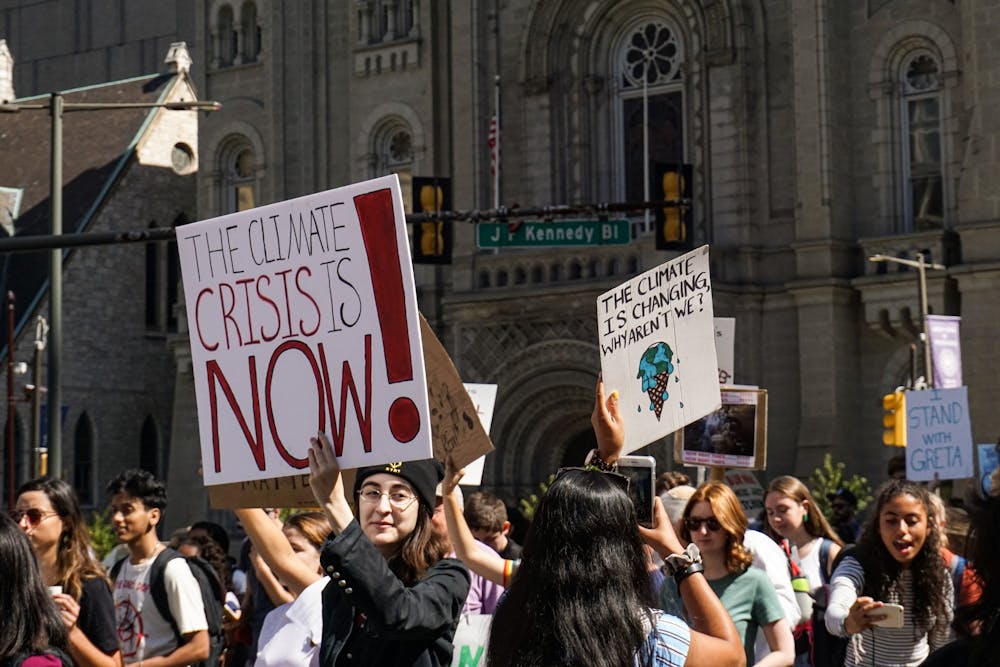
Researchers from Penn and University of Massachusetts Amherst found comparing climate change to past obstacles such as World War II and the Great Depression makes individuals become more concerned with taking environmental action.
Penn Psychology professor Geoffrey Goodwin and UMass postdoctoral researcher Hanne Melgård Watkins explored the concept of intergenerational reciprocity, or the idea that people develop a sense of obligation towards future generations by reflecting on the sacrifices made by past generations. The studies they conducted analyzed whether this concept could be applied to climate change.
In their research, published Nov. 19 in the Personality and Social Psychology Bulletin, Watkins and Goodwin conducted five online studies, each with 200-500 participants. Participants were asked to consider sacrifices made by past generations or, as a control, fashion choices made by past generations.
The researchers found when participants reflected on past sacrifices, such as those made in the Great Depression or World War II, they were more likely to report feeling a sense of moral obligation to future generations than if they reflected on past fashion choices.
“Other researchers have shown that reciprocity can be a powerful motivator," Watkins said in a UMass press release. "If someone does something for my benefit, that creates a sense of obligation to reciprocate, but if I can’t reciprocate directly for some reason, I might instead try to 'pay it forward."
While reflection may heighten moral obligation, Watkins added there may be downsides such as feelings of unworthiness. Further, there is no concrete evidence that intergenerational obligation could specifically spark pro-environmental concern or if these feelings could actually develop into action.
“It’s nice that this might make a difference, but it’s not clear whether it’s large enough to use, to implement as an intervention,” Watkins said in the press release. “We feel it is valuable to have explored the question, but if you want action on climate change you might be better served by trying something else. Maybe contact your local representative.”
The Daily Pennsylvanian is an independent, student-run newspaper. Please consider making a donation to support the coverage that shapes the University. Your generosity ensures a future of strong journalism at Penn.
Donate



